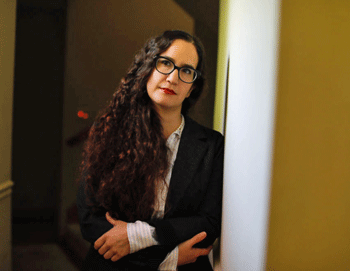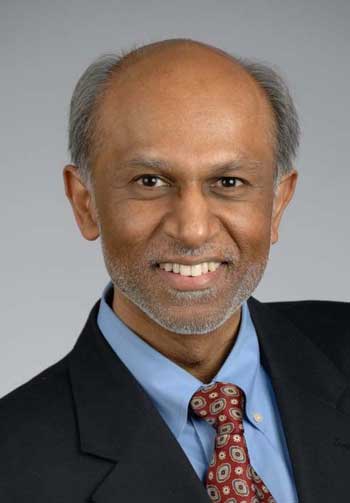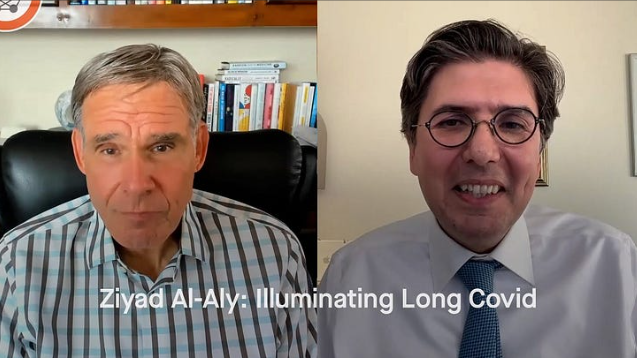

Geoff’s narration
Time magazine has been publishing its list of Top 100 most influential people on the planet for over 20 years. Four years ago it added Health and other other categories to the list.

Time has been around for 100 years and is still chugging along. Here is its first cover. (Image by William Oberhardt (1882-1958), Public domain, via Wikimedia Commons)
Time said it spent months consulting sources and experts around the world to select the 100 most influential individuals in the world of health right now. One would expect to see pioneers in cancer, heart disease, dengue fever, and Alzheimer’s pick up awards, and they do. These are diseases that are well entrenched in the public consciousness and the medical infrastructure.
Then there are the outsiders. Long COVID is still a baby in the medical research field and chronic fatigue syndrome (ME/CFS) could probably get an award for the most well-known but least well-funded disease on the planet. Long COVID and ME/CFS awardees, though, didn’t just crack the Top 100 – people associated with them made up about 5% of the awardees. We crashed the big disease party!
That was a surprise and it makes the TIME100 Most Influential People in Health in 2024 awards an easy ME/CFS and long-COVID moment; i.e. a sign that things are turning for the better for both these diseases.
Some past possible ME/CFS moments have included:
- MEAction’s Mayo Clinic breakthrough – in a come-to-Jesus kind of moment, the mighty Mayo Clinic reverses course, accepts ME/CFS as a major illness, and revamps its treatment protocols.
- Metrodora – a new medical and research center focused entirely on neuroimmune axis disorders such as chronic fatigue syndrome (ME/CFS), fibromyalgia, dysautonomia, postural orthostatic tachycardia syndrome (POTS), and migraine emerges.
- STAT Earpiece – this unique earpiece was designed specifically for diseases like ME/CFS, POTS, and other forms of orthostatic intolerance.
- CDC ME/CFS Survey – ME/CFS is Much More Common than Thought, Says CDC
Chronic Fatigue Syndrome (ME/CFS) Awardees

Jaime Seltzer – Scientific Director of MEAction. (Image from MEAction)
Jaime Seltzer/MEAction – Leader – Postviral Patient Advocate
It’s inconceivable that an ME/CFS advocate would have even been on the longest of Time’s lists for potential inclusion into the top 100 influential people in the world of health even a couple of years ago. The inclusion of Jaime Seltzer – the scientific director for MEAction for their work with the Mayo Clinic – on this list shows how dramatically things – at least in some circles – have changed.
If your goal was to change as rapidly as possible how doctors in the U.S. understand and treat ME/CFS, targeting the mighty Mayo Clinic with its stellar reputation and its 7,300 physicians and scientists – might be the first thing you would attempt do.
Something was up at Mayo in 2020 when it dropped CBT/GET from its website. They accelerated in May 2022 when Mayo Clinic officials from the Rochester, Minnesota branch met with #MEAction to discuss ways to improve their treatment, research, and engagement with the ME/CFS community.
Those discussions were successful as #MEAction teamed up with Mayo to win a grant from the Society to Improve Diagnosis in Medicine to transform how people with ME/CFS were diagnosed and treated at the Mayo Clinic Rochester.
Then in April of last year came the really big news. #MEAction and Mayo had created a diagnostic and treatment algorithm that doctors at the Mayo Clinic campuses across the country will use to quickly get them up to speed on ME/CFS. It was clearly an “ME/CFS moment”.
We hoped that MEAction’s work with Mayo would have legs – and it has – as the Time award stated that staff at Emory, Brown, and Georgetown are now working with #MEAction to improve ME/CFS treatment and education there as well. These are major steps forward that should continue to ripple outwards.
The Time Award constitutes an extraordinary moment for a disease long maligned as the “yuppie flu” and which still struggles to get even meager research funding. This year, however, Jaime Seltzer, MEAction, and ME/CFS sit next to pioneers fighting cancer, amyotrophic lateral sclerosis (ALS), and Alzheimer’s on Time’s Top 100 Health list. These are not diseases ME/CFS is usually associated with.
The fact that Time decided that having a breakthrough in how medical institutions simply approach ME/CFS was worthy of its award is telling. At least with Time Magazine, ME/CFS has made it into the big time.
Avindra Nath – Demystifying Exhaustion

Avindra Nath believes if you solve one postinfectious illness you’ll probably solve them all.
In another surprise choice, Avindra Nath – the clinical director of the U.S. National Institute of Neurological Disorders and Stroke – was awarded for his work in “demystifying exhaustion” in ME/CFS (thank god they didn’t say “fatigue”).
The award referenced Nath’s intramural “historic study” on a “long-ignored and mysterious condition: myalgic encephalomyelitis/chronic fatigue syndrome (ME/CFS)“. (ME/CFS wasn’t ignored this year :)). It’s remarkable to see Nath’s leadership of this small but intense study (17 ME/CFS patients – only 8 of whom finished both weekends) win this award. It suggests that the Time editors considered the NIH study to be one of the most significant studies in the medical field over the past year.
The Time Award stated that the study found, “people with ME/CFS have overactive and exhausted immune systems, perhaps because “bits and pieces” of an infectious pathogen linger in the body.” While it had its controversial points, the study was received well in the press and achieved its goals. (Yesterday, Nath led a symposium on the intramural study that cleared several questions up. A blog on that is coming up).
Time also noted that the study, “will be instrumental in pushing forward research and treatment trials focused not only on ME/CFS but also on other post-infectious illnesses like Long COVID”. Indeed, long-COVID patients can thank ME/CFS for paving the way for the similar long-COVID study that Nath is now engaged in.
Referring to post-infectious illnesses, Nath called long COVID, “a great opportunity (for all of them.) If you can crack one of them, I think we can crack all of them.” May it be so.
The NIH must be happy to see one of its leaders getting such a prominent media award, but there’s a jarring disconnect here. Its house researcher just received major recognition for leading a study on a disease that NIH continues to neglect. Maybe the NIH will get the hint – it can get major kudos (something every publicly funded institution loves) for good work done on ME/CFS – and find a way to step up funding.
- Read the Time 100 Most Influential People in the Health Field essay
Long COVID Awardees

Yale’s Akiko Iwasaki won twice! Besides her long COVID work, she’s been a strong supporter of more work in ME/CFS. (Image from Yale University)/
Akiko Iwasaki – Double Award Winner – Too 100 Most Influential People Overall; Top 100 Most Influential People in the Health Field
Iwasaki won the Top 100 Most Influential People award for her work on long COVID. Her award was written, ironically enough, by Anthony Fauci, the former longtime leader of the NIAID, who after ignoring ME/CFS for decades, plumped for increased funding… after he retired. Iwasaki won the health award for her role in developing nasal vaccines and for her work in long COVID.
Iwasaki quickly made long COVID a major research focus and is a recognized leader in the field but with a difference. While some long-COVID researchers seem reluctant to acknowledge (let alone study) ME/CFS, Iwasaki early noted the similarities between long COVID and ME/CFS and called for more research.
She was the keynote speaker at the 2022 IACFS/ME conference, has participated in Solve M.E. webinars, and at the 2023 Keystone Conference Iwasaki rather boldly stated that the field, “needs to go beyond the spike protein” of coronavirus and understand the underlying pathologies that persist in long COVID and other post-infectious illnesses. Last year she received a $3 million private grant to study long COVID, Lyme Disease, and ME/CFS together.
With Harlan Krumholz, Iwasaki is also studying post-vaccination illness. She’s a leader in every way.
- Read the Time 100 Most Influential People essay
- Read the Time 100 Most Influential People in the Health Field essay
Ziyad Al-Aly – Advocating with Research

Ziad Al-Aly and Eric Topol discussing long COVID.
A clinical epidemiologist and Chief of the Research and Development at the Veterans Affairs St. Louis Health Care System, Ziyad Al-Aly – a former air pollution researcher – has been a surprising and very welcome addition to the long-COVID research field.
With 20 publications on long COVID over the past three years, Al-Aly has published at a torrid pace. He’s used his access to vast amounts data at the Veterans Administration to produce seminal papers that indicate that having a coronavirus infection increases the risks of coming down with an astonishingly wide array of diseases and conditions.
Al-Aly has not confined himself to long COVID, however. He recently presented powerful testimony to Congress, arguing for more funding for all post-infectious diseases, and his and Eric Topol’s Science paper, “Solving the Mystery of Long COVID“, asserted that federal funding should support, “a comprehensive portfolio of research in infection-associated chronic illnesses”, including ME/CFS. While doing so, they noted how, “disproportionately underfunded relative to the burden of long-term disability” the post-infectious field is.
- Read the Time essay here.
Honorable Mention – Eric Topol – Scientific Translator
Topol didn’t win this award for his work on ME/CFS or long COVID – he won it for his pioneering work on artificial intelligence and medicine – but Topol’s COVID-19 work was noted and he’s been a strong advocate for both long-COVID and ME/CFS on his Ground Truths substack, his X account, and in his published work. I’ll count Topol’s win, then, as also a win for long COVID and ME/CFS.
It was a good day for ME/CFS and long COVID.






Yes! A very good day for ME indeed.
I heard about it when they mentioned it in passing during the NIH Symposium yesterday, but thank you for highlighting the ME-related winners here.
I hope these wins are a harbinger of change in (increased) credibility for these diseases. Congratulations to those people who won – we are all rooting for you.
It really is inspiring to know that top scientists are pointing to the need for focussing on commonalities in all these related illnesses.
“I think we can crack all of them”. Indeed!
Wouldn’t that be something? If Nath thinks its possible – I do too! 🙂
I really doubt that 🙂
They missed Dr. James F. Jones, THE leading expert in CFS/ME for over 30 years. He helped establish the original CDC criteria. He doesn’t seek the spotlight, that’s why his unmatched contribution to CFS/ME research frequently goes unnoticed. No doctor comes close to his expertise which I know firsthand. https://www.researchgate.net/profile/James-Jones-32
I’m so happy to see positive news with the public about ME/CFS! They actually included the full name and not just chronic fatigue, which drives me up a wall because people don’t realize ME/CFS is its own complex disease. Thanks for sharing!!!
Nath is the odd one out he really doesn’t deserve to be on this list given his contributory role only to a paper led by Wallitt. That paper made ME/CFS about “effort preference” and didn’t even use better than Fukuda criteria. He and Wallitt did enormous harm and has set the NIH on a dangerous path of psychobabble nonsense once again.
Time really shouldn’t be putting people who have proven themselves to be dangerous opponents to ME/CFS biological research in with people who are genuinely trying to find the cause or achieve sufficient funding for the disease.
lol, my Effort Preference is to be out walking and cycling. Yet here I lie in bed, watching goldfinch fights at the bird feeder (vicious little creatures!). That’s one terrible misunderstanding of “exhaustion”.
It’s worth listening at least to Nath and Walitt’s opening remarks at the symposium. Or the final scientific panel. They are very clear that MECFS is a physical disorder. They are allies and could use our encouragement.
The “Effort Preference” is really unfortunate because it (rightly) rings so many alarm bells in the MECFS community. But, they are using it as a neurological measurement linked to the brainstem with a technical meaning, and in other physical illnesses as well such as Parkinson’s, Stroke, and Fronto-temporal Dementia. It is not a psychological description.
The symposium will shortly become available to view at:
https://videocast.nih.gov/PastEvents
That was my take as well. Just a mention of Brian Walitt’s name is enough to send some people ballistic but Walitt has received nothing but good grades from patients, doctors and researchers who have worked with him. It doesn’t help us as a community to focus solely on one thing written in the past and ignore everything else – it just makes us look weird.
I agree the “effort preference” thing was alarming but that was cleared up during the recent symposium. I think you’ll be happy to hear what they said. The patients in the study were all vetted by a team of long time ME/CFS experts – names you know and have trusted for decades. They also went through an entire week of testing to ensure that they had ME/CFS and not something else. It’s probably the best group of patients in any study.
I hope you will do a google search for Nath and ME/CFS and see what pops up. I think you’ll be a lot less worried about Nath if you do that. Here are some things he recently said
““Overall, what we show is that ME/CFS is unambiguously biological, with multiple organ systems affected. It’s a systemic disease, and the people living with it deserve to have their experiences taken seriously.”
“We believe these are virtually the same disease, although there are some differences, and they should be managed and studied in multidisciplinary clinics focused on post-infectious syndromes.” Avindra Nath, MD, FAAN, clinical director of the National Institute of Neurological Disorders and Stroke (NINDS). – that’s exactly what advocates are trying to do now at the NIH – this is from someone within the NIH!
“Dr. Nath said his theory is that, in both long Covid and post-infectious ME/CFS, “either you have bits and pieces of that pathogen sticking around and driving this thing” or “the pathogen is gone, but whatever it did to the immune system, it just never settled down again.” – that’s no psychology in that! It’s all biology.
Akiko Iwasaki is even mentioned in the short summary on Time’s website 🙂 https://time.com/6972830/how-we-chose-time100-health/ j
Thanks for the blog and the vax injury mention. I was, before Boost #2, a recovered Lymie (bull’s-eye rash definitive); now post probable C, reactivated Babesia, EBV, and possibly Lyme also positive ANA and a host of other problems as well, coming up on the two-year mark of being ill.
If you haven’t seen the recent NYT article on vax injury, it’s a worthwhile read. https://www.nytimes.com/2024/05/03/health/covid-vaccines-side-effects.html
The European ME Alliance is composed of European organisations who are involved in supporting patients suffering from myalgic encephalomyelitis (ME or ME/CFS) and are campaigning for funding for biomedical research to provide treatments and cures for ME.
On World Health Day 2024 the findings of EMEA’s patient survey were unveiled, painting a distressing picture of neglect and suffering endured by millions across Europe.
The survey report ‘ EMEA survey of ME/CFS patients in Europe: Same disease, different approaches and experiences’ lays bare the systemic failures and institutional neglect that have perpetuated the suffering for far too long and alerts all stakeholders of the urgent need for concerted action to address the humanitarian crisis facing people with ME and their families.
The report is an indictment of the status quo.
Yet, by shining a spotlight on these issues, EMEA seeks to catalyse meaningful dialogue and concrete steps towards redressing the injustices faced by ME patients.
Access here: https://www.europeanmealliance.org/emeasurveyeu.shtml – the EMEA press release and the full report, key messages and information sheet, along with EMEA comment. Several documents are available in various languages. In Annex 4 of the report, the responses are summarized by country, with some respondents outside of Europe from the US, Canad and Australia.
Thank you in advance for sharing this information with others and please send any feedback to: info@europeanmealliance.org
Thank you.
Congratulations to everyone dedicating their time and effort to ME/CFS, which as the article says, “could probably get an award for the most well-known but least well-funded disease on the planet.”
As information, in Europe there is the European ME Alliance, composed of European organisations who are involved in supporting patients suffering from myalgic encephalomyelitis (ME or ME/CFS). The Alliance is also campaigning for funding for biomedical research to provide treatments and cures for ME.
On World Health Day 2024 the findings of EMEA’s patient survey were unveiled, painting a distressing picture of neglect and suffering endured by millions across Europe.
The survey report ‘ EMEA survey of ME/CFS patients in Europe: Same disease, different approaches and experiences’ lays bare the systemic failures and institutional neglect that have perpetuated the suffering for far too long and alerts all stakeholders of the urgent need for concerted action to address the humanitarian crisis facing people with ME and their families.
The report is an indictment of the status quo.
• The survey highlights profound disability levels and unmet needs among European ME/CFS patients. Findings underscore the urgent priority to recognise ME/CFS as a serious illness and provide better medical care, financial support, and social services.
• Access to medical care and social support varies across Europe, resulting in both a general but dangerous neglect of the illness, with different approaches taken by national health authorities, impacting courses of illness and disease outcomes.
• Therapies involving fixed increases in activity tend to worsen symptoms and risk a deteriorating course of the illness, rather than leading to improvement.
• Early diagnosis, activity management (pacing) and avoidance of over-exertion (PEM) are key to reducing the risk of progression to severe disease.
By shining a spotlight on these issues, EMEA seeks to catalyse meaningful dialogue and concrete steps towards redressing the injustices faced by ME patients.
Access here: https://www.europeanmealliance.org/emeasurveyeu.shtml – the EMEA press release and the full report, key messages and information sheet, along with EMEA comment. Several documents are available in various languages. In Annex 4 of the report, the responses are summarized by country, with replies from some respondents outside of Europe from the US, Canad and Australia.
Thank you in advance for sharing this information with others and please send any feedback to: info@europeanmealliance.org
Had a look, this is a wealth of information, great work.
“The most restrictive symptom was symptom exacerbation after exertion (PEM), followed by sensitivity to light, sound and smell. ” – Loving the recognition of sensory hypersensitivities, my problem No. 1 that in my living situation prevents me from improving.
Cort Johnson should get a top 100 M.E. award!
🙂
I just came across a research paper which could change the whole dynamic of post viral inflammatory diseases!!! Basically, researchers have discovered a master switch, two switches actually, which regulate inflammatory responses in the body. Unfortunately this was done in mice, but it is looking very likely that it can be applied to humans.
It concerns signals from the vagus nerve to tell the body to ramp up or ramp down inflammation, which at appropriate levels, is part of the body’s healing mechanism. https://www.nature.com/articles/d41586-024-01259-2?utm_source=substack&utm_medium=email
This new finding, and it is very new, does not contradict Dr. Naths research discoveries on ME/CFS because the vagus nerve feeds information to the brain to regulate the body’s responses. These researchers discovered that they could turn off or turn on the immune system and therefore potentially control autoimmune disorders, ME/CFS being one of them. If the theory of ME/CFS, or even Long-Covid, being a dis-regulated immune system is correct, this discovery could be huge!